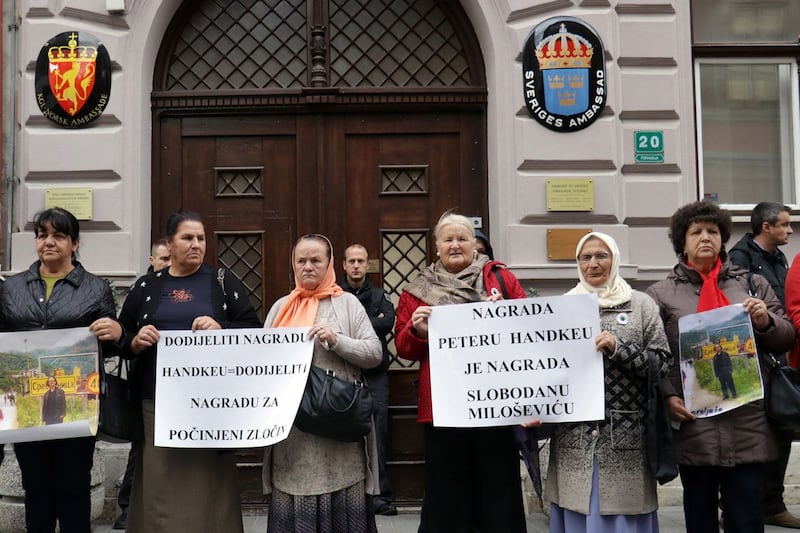On this day 25 years ago, in a small town in eastern Bosnia, the sometimes-thin curtain dividing this world from the very blackest parts of the next was about to be ripped apart.
Srebrenica would never be the same again. Between July 11 and 21, it seemed as if the full force of hell itself was unleashed as Bosnian Serb forces killed 8,372 Bosnian Muslims - almost all men and boys - who had been sheltering in a so-called 'safe zone' that was supposed to be under the protection of the United Nations.
Srebrenica was as violent a rending of the fabric between earth and hell as the concentration camps of the Holocaust, Stalin's gulags or the Khmer Rouge's killing fields in Cambodia.
#Premium
It was the last genocide perpetrated on European soil, but not the last time that mankind's capacity for inhumanity was so outrageously demonstrated; the Yazidis in Iraq, the Rohingya in Myanmar and the Uyghurs in China are among those who still experience genocide today.
Srebrenica was the climax of the Bosnian War that raged between 1992 and 1995, a conflict characterised by 'ethnic cleansing' that claimed around 100,000 lives and displaced more than 2.2 million people from their homes.
Theodor Meron, who was the presiding judge of the International Criminal Tribunal for the former Yugoslavia, spoke of how Srebrenica qualified as genocide because the Bosnian Serb forces had "stripped all the male Muslim prisoners, military and civilian, elderly and young, of their personal belongings and identification, and deliberately and methodically killed them solely on the basis of their identity".
Just as Hitler's plan to annihilate the Jews on the basis of their identity ultimately failed, so too did the genocide masterminded by Serb figures like Radovan Karadzic and Ratko Mladic.
The futility of their hatred is emphasised by the testimony of those they sought to destroy - people like Mevlida Lazibi, who was in Belfast yesterday on behalf of Remembering Srebrenica.
She was one of the thousands who sought refuge in Srebrenica because the UN said it was safe.
Serbian forces attempted to cover up their atrocities by digging up and reburying the mass graves at their execution sites, often repeatedly. The remains of Mevlida's younger brother were found at three different locations - a grimly familiar scenario
Mevlida had to give birth in a forest; her daughter died. She was, however, among the women who got to leave Srebrenica - evacuated on a truck packed so tightly that, she remembers, when someone died there was not enough room for the body to fall to the floor.
Her father, brothers, uncles and grandfather did not taste freedom. In all, 36 of Mevlida's family were killed.
Serbian forces attempted to cover up their atrocities by digging up and reburying the mass graves at their execution sites, often repeatedly.
The remains of Mevlida's younger brother were found at three different locations - a grimly familiar scenario.
Remains are still being found. Incomplete remains of at least two victims were discovered last month, for example - these reports invariably say "incomplete" and "at least". A couple of days later a skull was found elsewhere.

Also last month, the trial started in Sarajevo of Milomir Savcic, a former commander in the Bosnian Serb army, on charges of assisting in the genocide at Srebrenica.
Despite the weight of forensic, documentary and legal evidence, as well as the testimony of survivors like Mevlida and the Srebrenica memorial, there are now those who deny any of it happened.
The political leader of the Bosnian Serbs today is Milorad Dodik. He believes that Srebrenica was "a staged tragedy with an aim to satanise the Serbs". He has opened a university building named in honour of Radovan Karadzic - convicted, remember, by an international court of genocide.
One cannot - and should not - draw exact parallels between the Troubles and the Bosnian War.
But as our society continues to stumble in dealing with its past, one lesson we might draw from Srebrenica is the importance of never ignoring - or revising - what has happened. To remember is difficult; to forget may be worse.











